10 Groceries Getting More Expensive as Steel and Aluminum Tariffs Hit Today
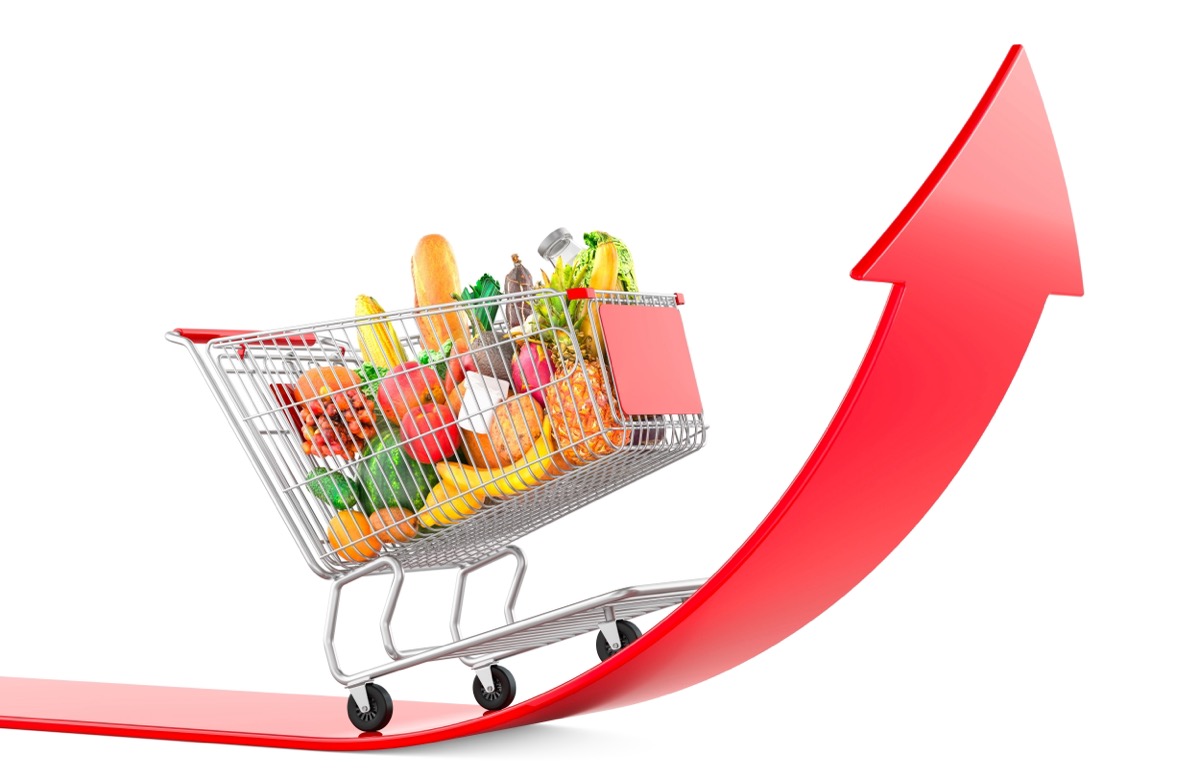
If you've noticed grocery prices creeping up lately, get ready for more sticker shock. New tariffs on steel and aluminum imports have just taken effect, and they're expected to make certain everyday grocery items more expensive. Why? Because many of the products we rely on—like canned vegetables, soda, beer, and pet food—come in metal packaging. When the cost of steel and aluminum goes up, manufacturers often pass those expenses on to shoppers.
This isn't just speculation—past tariffs on metals have led to price hikes across the grocery aisle, and experts warn we could see similar increases this time around. With food costs already a concern for many households, even small price bumps can add up over time. Here, we break down ten grocery staples likely to see higher prices due to these new tariffs.
Canned Vegetables

Staples like canned corn, peas, and green beans could see price hikes as the cost of steel packaging rises. These vegetables are a go-to for many families due to their long shelf life and affordability, but the added expense of producing steel cans will likely be passed on to consumers. According to industry experts, food manufacturers are already facing thin profit margins, so they have little choice but to adjust prices when material costs rise. While fresh produce remains an alternative, it isn't always as convenient or accessible for shoppers who rely on canned goods for budget-friendly meal planning.
Canned Fruits
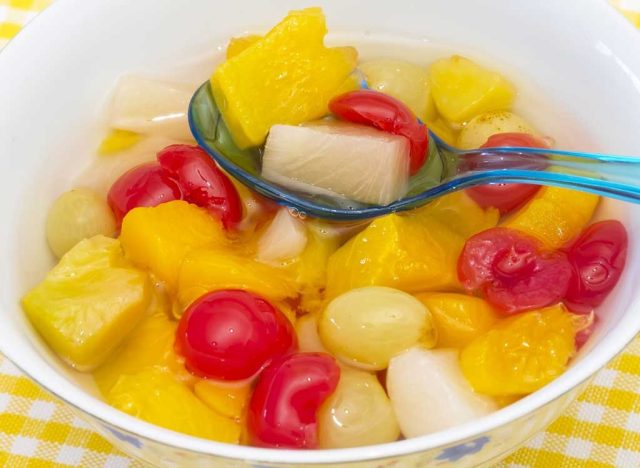
Popular fruits like peaches, pineapples, and pears, which are commonly packaged in aluminum cans, may soon cost more at checkout. Aluminum prices have been rising due to both the tariffs and global supply chain constraints. Many fruit canning companies source their metal from international suppliers, meaning they will be directly impacted by the tariffs. Some brands may try to absorb the costs initially, but as expenses add up, price increases will be inevitable. Consumers looking for lower-cost options might consider frozen or fresh fruit, though these alternatives come with their own pricing fluctuations and shorter storage lives.
Canned Soups

Campbell's and other major soup manufacturers have already voiced concerns about rising costs tied to aluminum and steel. Soups such as chicken noodle, minestrone, and tomato rely on metal cans for storage and transportation, making them prime candidates for price hikes. With soup consumption peaking during colder months, any increase in costs could hit consumers right when demand is highest. While some brands may try to reduce packaging sizes instead of raising prices, shoppers should expect to pay more for their favorite canned soups in the near future.
Canned Fish
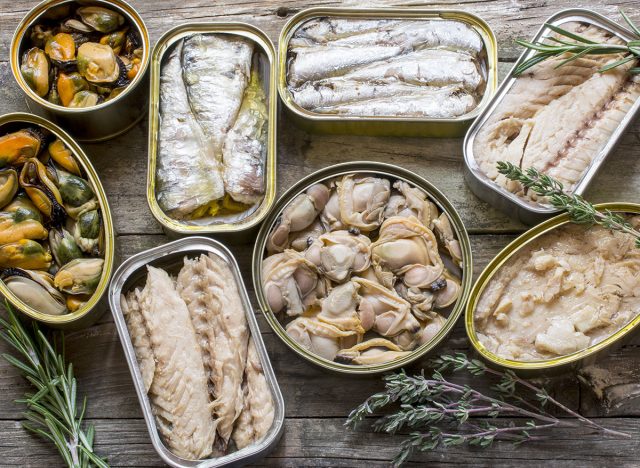
Tuna, salmon, and sardines—longtime pantry staples—are also caught in the crossfire of these tariffs. Most canned fish comes in aluminum packaging, which is now more expensive to produce. Seafood companies that rely on imported aluminum are expected to pass these additional costs onto customers. For budget-conscious shoppers, this could mean rethinking meal plans or switching to frozen or fresh seafood options, though those alternatives often come with their own price surges due to inflation and supply chain disruptions.
Canned Pet Food
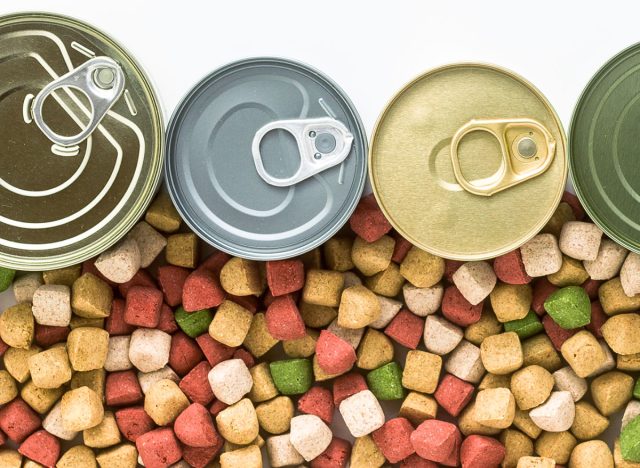
Pet owners may soon see a jump in the cost of canned dog and cat food. Many wet pet food brands rely on steel and aluminum cans to keep their products shelf-stable. As manufacturing expenses climb, companies like Purina and Blue Buffalo may have no choice but to raise prices or reduce package sizes. Since pet food is an essential purchase for millions of households, these increases could add up quickly for families already dealing with inflation on human groceries.
Carbonated Beverages
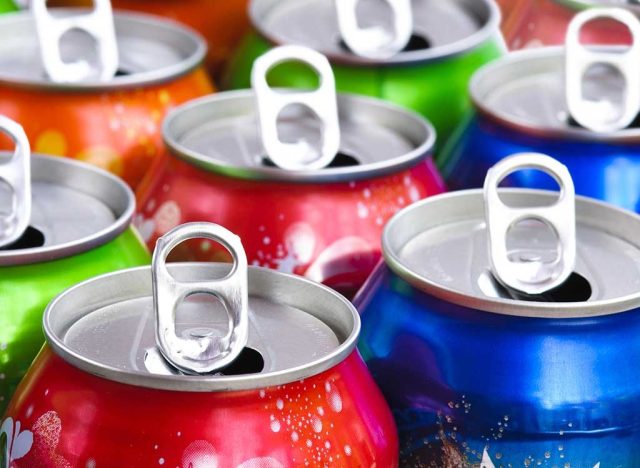
Sodas, sparkling waters, and energy drinks are packaged almost exclusively in aluminum cans, making them one of the most obvious victims of these tariffs. Beverage giants like Coca-Cola and PepsiCo have previously raised prices in response to aluminum shortages, and with additional tariffs now in play, another round of increases could be on the way. This comes at a time when companies are already adjusting to inflation and supply chain issues, meaning consumers might see both higher prices and potential shortages on store shelves.
Beer
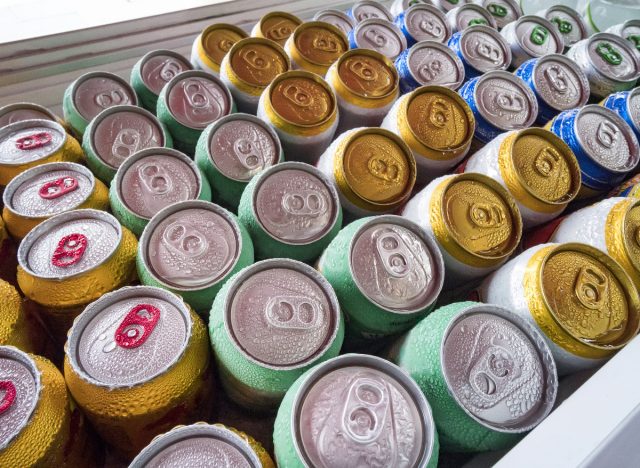
The beer industry has been sounding the alarm on aluminum prices for years, and these tariffs only add more pressure. Brewers, both big and small, rely on aluminum cans for packaging, with craft breweries particularly vulnerable to cost spikes. While large beer companies like Anheuser-Busch and Molson Coors may have the ability to absorb some costs, smaller breweries could struggle, leading to either higher prices or fewer options for consumers. This could result in beer drinkers shifting toward bottled options or reducing purchases altogether.
Tomato Products
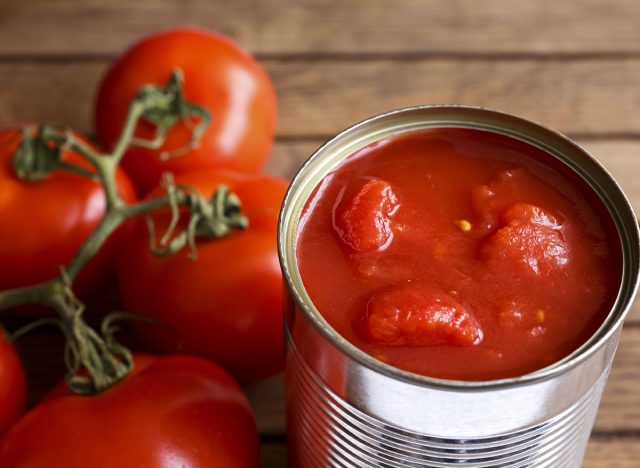
Canned tomato products—including diced tomatoes, sauces, and pastes—are kitchen essentials, but they are also heavily dependent on steel cans. The tariffs on steel imports will directly impact the cost of producing these products, leading to higher prices on grocery store shelves. With inflation already affecting fresh produce, many households turn to canned tomatoes as an affordable alternative for pasta sauces, soups, and stews. Unfortunately, these tariffs may make even pantry staples harder to afford.
Canned Beans
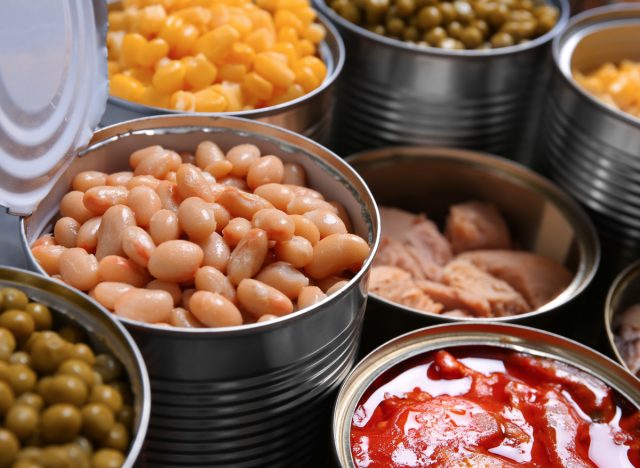
Black beans, kidney beans, chickpeas, and other legumes are nutritional powerhouses that have long been a staple for budget-conscious shoppers. However, they are packaged in steel cans, making them susceptible to rising production costs due to these tariffs. The increase in bean prices may have a larger impact on consumers who rely on plant-based protein sources, as canned beans often serve as a lower-cost alternative to meat. Dry beans remain an option, though they require more preparation time.
Canned Pasta
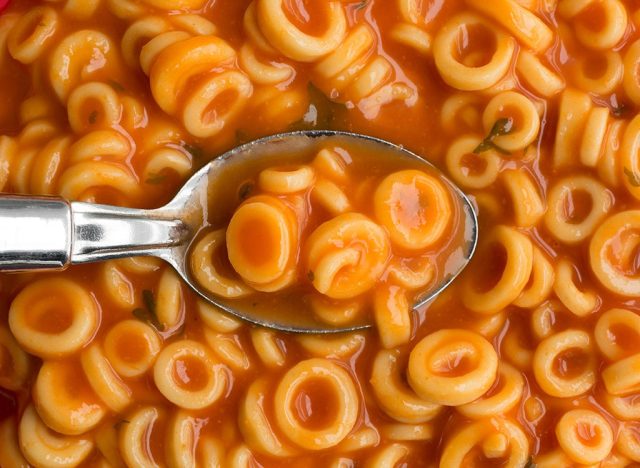
Convenience meals like canned ravioli and spaghetti rings have long been a favorite among busy families and college students. However, as the cost of steel rises, so too will the price of these easy-to-make meals. Some brands may reduce portion sizes while keeping prices steady, a tactic known as "shrinkflation." Others may opt for direct price increases. Either way, consumers should expect to pay more for these simple, ready-to-eat pasta dishes in the coming months.
Make better eating choices every day by signing up for our newsletter, and be sure to follow us on MSN!








